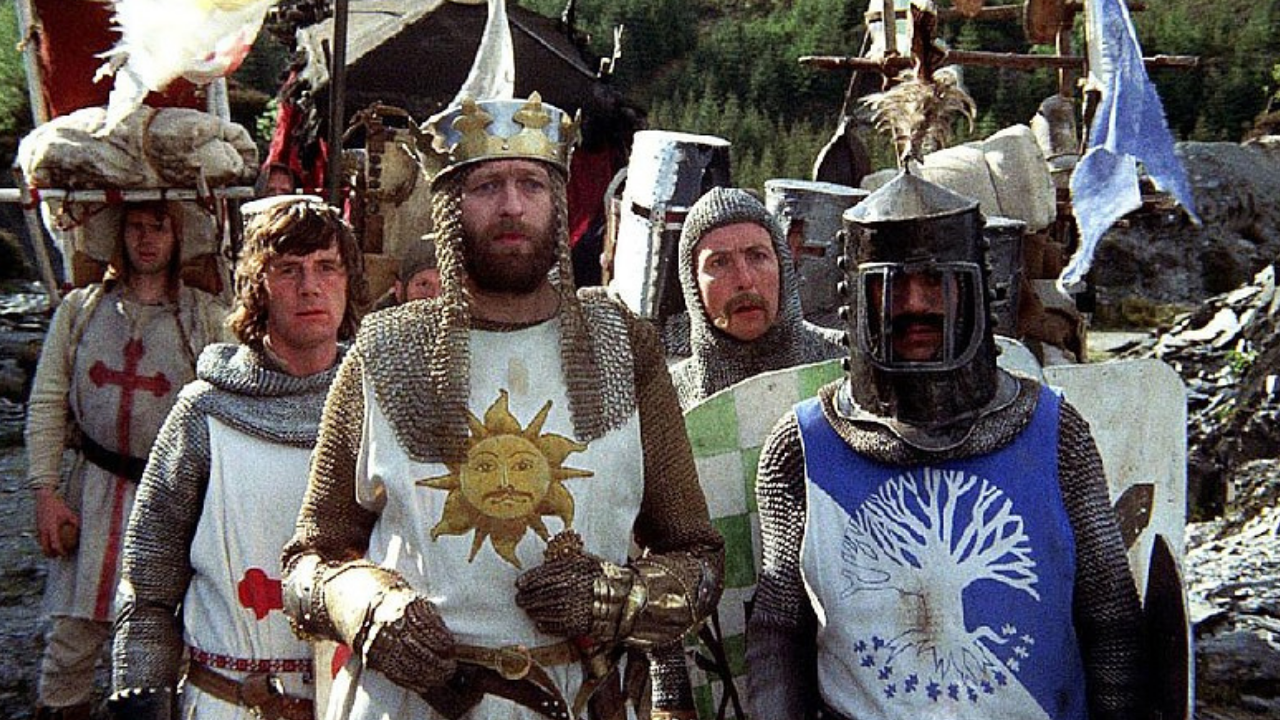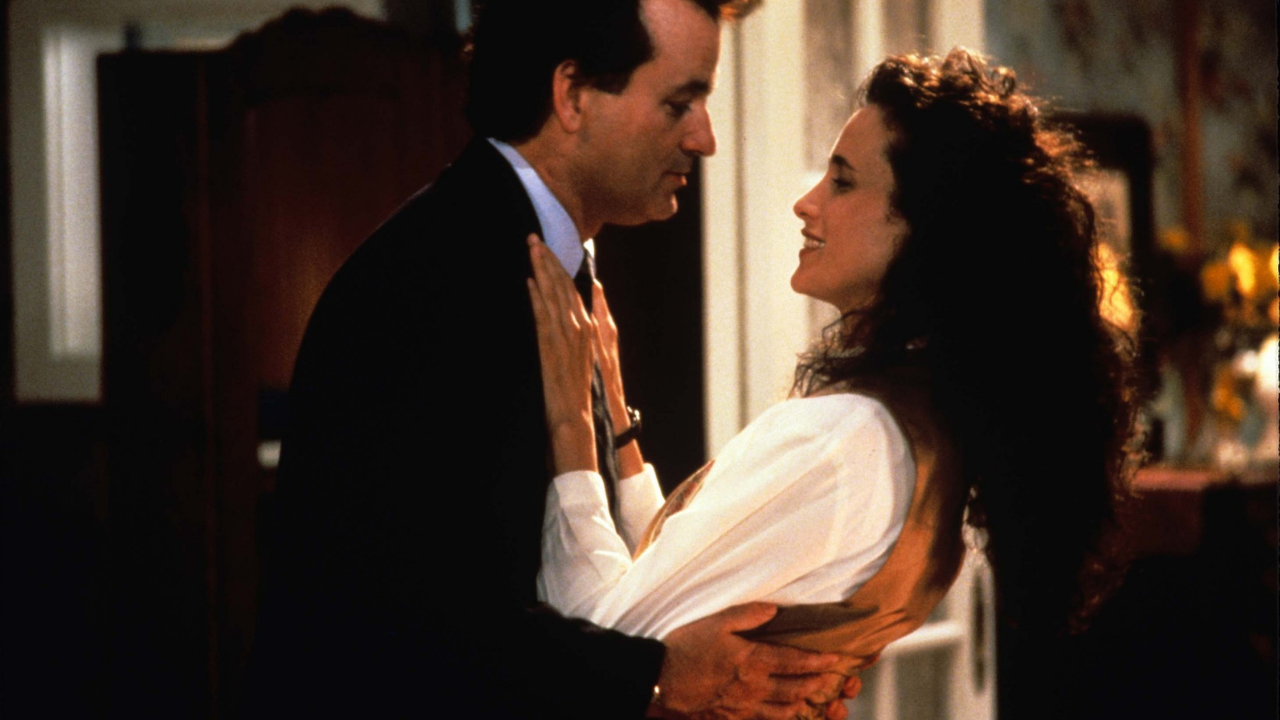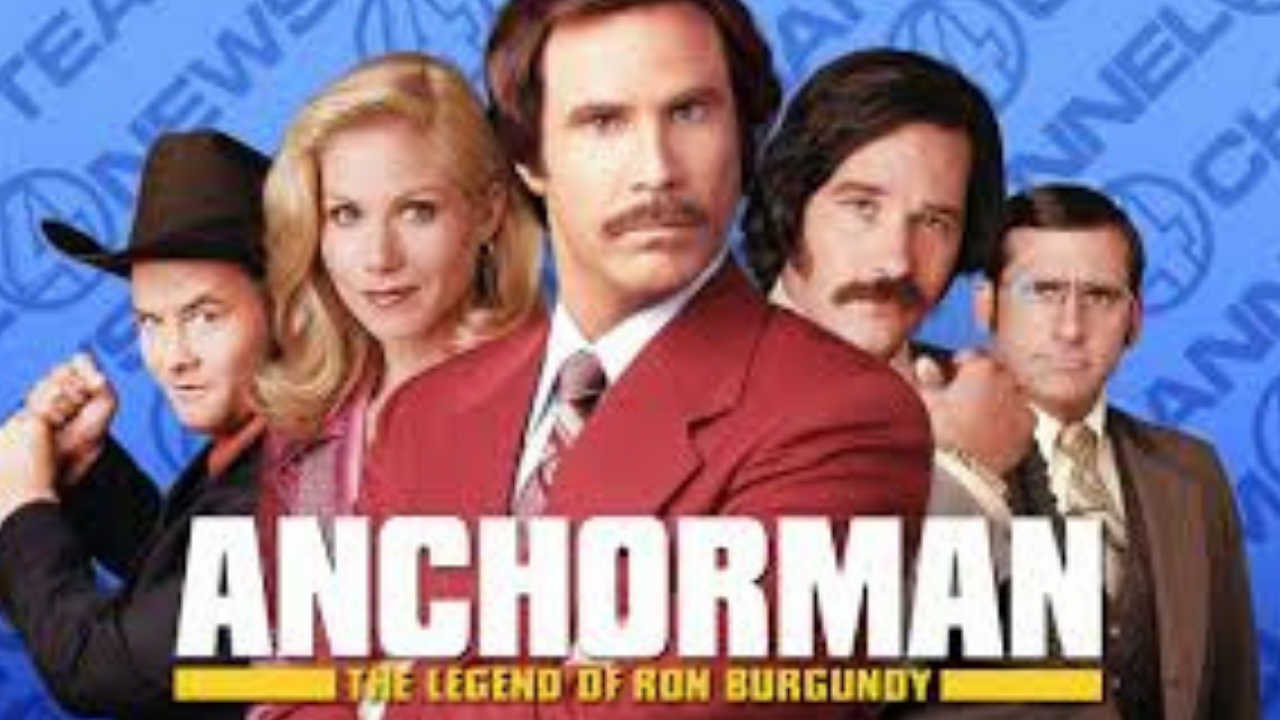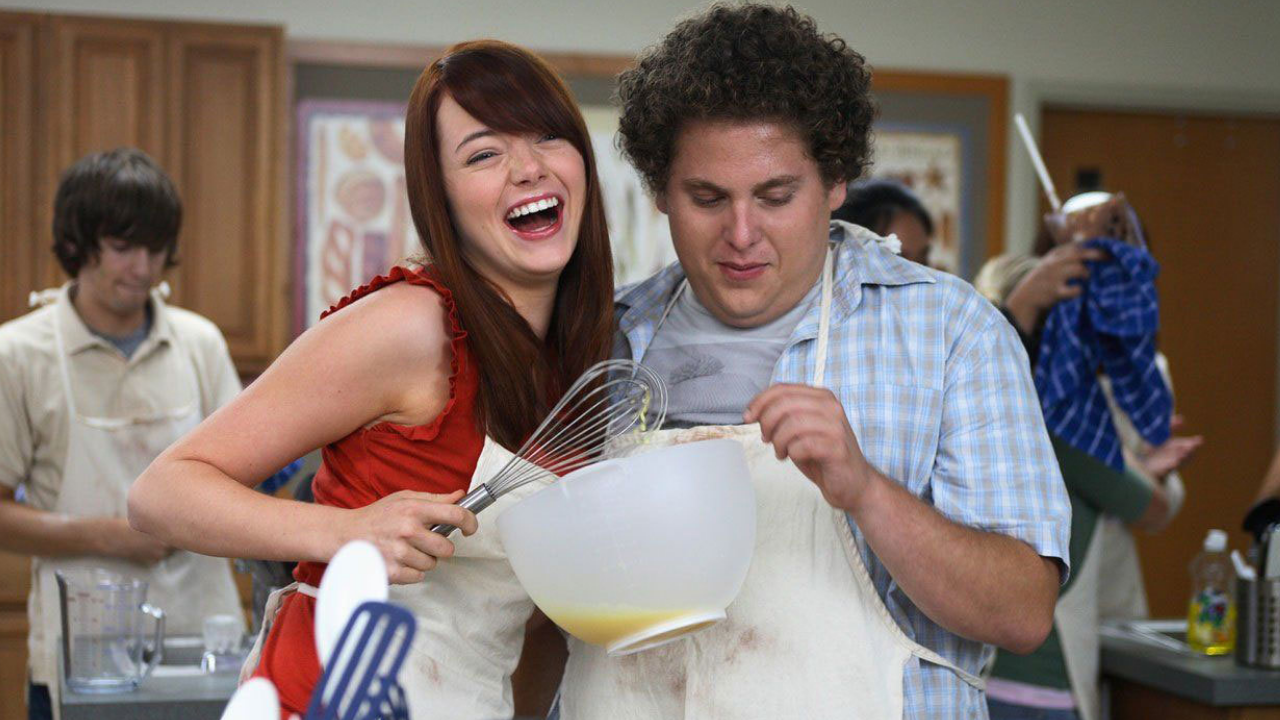Comedy holds a unique and significant role in the realm of cinema. From the early days of slapstick in the silent film era to the nuanced humor of contemporary comedies, this genre has consistently managed to captivate audiences across generations. Comedy movies have evolved dramatically over the years, mirroring societal changes and reflecting the zeitgeist of their respective times. Pioneers like Charlie Chaplin and Buster Keaton set the stage with their timeless physical comedy, while contemporary filmmakers explore a plethora of sub-genres, from romantic comedies to dark humor.
As cinema progressed, so did comedic narratives, with the advent of sound and advancements in film technology enabling more sophisticated and layered humor. The impact of comedy on popular culture cannot be overstated; it has the power to unite people, challenge social norms, and provide a much-needed escape from the mundane or the challenging aspects of life. Iconic phrases, memorable scenes, and beloved characters from comedy films often become etched in cultural memory, influencing everything from language to fashion.
Beyond entertainment, comedy serves as a social commentary, often shedding light on serious issues through the lens of humor. It pushes boundaries and invites audiences to laugh at the absurdities of life, promoting a sense of shared experience and understanding. The best comedy movies achieve a delicate balance; they are both a product of their time and timeless in their appeal, resonating with audiences long after their release. They hold a special place in the hearts of viewers, creating an enduring legacy that informs and shapes the future of filmmaking.View More
Monty Python and the Holy Grail (1975)

“Monty Python and the Holy Grail,” released in 1975, is a seminal comedy film that has cemented its place in the annals of cinematic history. Directed by Terry Gilliam and Terry Jones, the film features the iconic Monty Python comedy troupe, including John Cleese, Eric Idle, Michael Palin, Graham Chapman, Terry Jones, and Terry Gilliam himself. The film parodies Arthurian legend, following King Arthur and his knights as they embark on a comedic quest to find the Holy Grail.
The story is an irreverent take on medieval narratives, filled with absurdist humor and satirical elements that poke fun at traditional storytelling. Key actors deliver performances that highlight their unique comedic talents. John Cleese, as the Black Knight, stands out with his “just a flesh wound” scene, capturing the blend of physical comedy and wit that characterizes the film. Another memorable scene is the debate over the airspeed velocity of an unladen swallow, showcasing the troupe’s penchant for blending intellectual humor with slapstick.
Quotable lines like “Your mother was a hamster and your father smelt of elderberries” have permeated popular culture, becoming part of everyday vernacular. Beyond the laughs, “Monty Python and the Holy Grail” is notable for its innovative use of low-budget special effects and its self-referential jokes, which have influenced countless comedies since.
Culturally, the film has had a lasting impact. It continues to be cherished for its originality and the way it pushed the boundaries of comedy. Decades after its release, it remains beloved by audiences of all ages, indicative of its timeless appeal and enduring humor. This film not only epitomizes the comedic genius of Monty Python but also continually inspires new generations of comedians and filmmakers.“““html
Airplane! (1980)

‘Airplane!’ emerges as a satirical tour de force that revolutionized the comedy genre. Released in 1980, this film employs a distinctive approach to humor that blends slapstick comedy, absurdity, and clever wordplay. Directed by the trio of Jim Abrahams and brothers David and Jerry Zucker, ‘Airplane!’ is a pastiche of the disaster film genre, particularly parodying the 1957 movie ‘Zero Hour!’.
The plot of ‘Airplane!’ revolves around a former fighter pilot, Ted Striker, who has to overcome his fear of flying to save a commercial flight in peril. The story is straightforward yet becomes a platform for relentless comedy, where each scene is packed with visual gags, pun-filled dialogue, and surreal situations. The film’s comedic brilliance lies in its deadpan delivery and the juxtaposition of serious situations with ludicrous resolutions, making every moment unforgettable.
Standout performances enhance the film’s comedic impact. Robert Hays as Ted Striker and Julie Hagerty as Elaine Dickinson deliver memorable portrayals, maintaining straight faces amidst the chaos, which amplifies the humor. However, the performance that steals the show is Leslie Nielsen as Dr. Rumack. Nielsen’s impeccable timing and earnest delivery of the absurd lines, like the famous “Don’t call me Shirley,” epitomize the film’s humor.
A significant aspect of ‘Airplane!’ is its use of specific comedic devices. These include visual humor, where the background action adds layers of comedy, and situational irony, where the characters’ earnest reactions heighten the absurdity of their predicaments. The film’s dialogue is rich with puns and double entendres, creating a multi-faceted comedic experience that appeals on various levels.
‘Airplane!’ set a new benchmark for parody films, influencing countless productions in the years following its release. Its legacy in the comedy genre is indelible, with its style and humor resonating across generations. ‘Airplane!’ not only made audiences laugh uproariously but also demonstrated the boundless possibilities of satire and parody in cinema.“`
Groundhog Day (1993)

‘Groundhog Day’ stands as a paragon of innovative comedic storytelling, deftly balancing humor with profound philosophical undertones. Directed by Harold Ramis and featuring Bill Murray in a career-defining role, the movie has earned a place among the greats for its unique narrative and thematic richness.
The plot centers around Phil Connors, a cynical and self-centered weatherman, who finds himself inexplicably reliving the same day—Groundhog Day—over and over again. This narrative device serves as both a source of comedy and a conduit for deeper existential questions. As Phil grapples with his surreal predicament, the film explores themes of self-improvement, redemption, and the search for meaning in a seemingly repetitive world. Bill Murray’s performance is nothing short of iconic, infusing the character with a blend of dry wit and vulnerability that makes Phil’s journey both hilarious and deeply moving.
From a comedic perspective, ‘Groundhog Day’ employs a variety of techniques—slapstick humor, deadpan delivery, and situational comedy—to engage the audience. Yet, it transcends conventional comedy by delving into Phil’s psychological transformation. Initially, he exploits his bizarre situation for personal gain and petty amusement. However, as the endless loop continues, he begins to reflect on his life and values, gradually transforming into a kinder, more compassionate individual. This evolution adds a layer of depth that elevates the film beyond a mere comedy.
‘Groundhog Day’ has had a lasting influence on both comedic and existential narratives in cinema. Its blend of humor and philosophical inquiry has inspired numerous films and discussions about the human condition. Critics and audiences alike have praised its ability to entertain while prompting reflections on life’s purpose and the potential for self-growth. Indeed, ‘Groundhog Day’ is more than just a comedy; it is a timeless exploration of human resilience and the redemptive power of love and kindness.
Anchorman: The Legend of Ron Burgundy (2004)

“Anchorman: The Legend of Ron Burgundy,” released in 2004, has solidified its place in the annals of comedy film history. Directed by Adam McKay, this film presents an uproarious satire of the 1970s news industry, centering around the egotistical and hilariously clueless news anchor, Ron Burgundy, played by Will Ferrell. The character of Ron Burgundy became an icon of comedic brilliance, and Ferrell’s performance is widely regarded as one of his finest.
The film’s success is not solely attributable to Ferrell’s portrayal but also to its stellar ensemble cast. The likes of Steve Carell, Paul Rudd, and David Koechner delivered unforgettable performances, each adding a unique dimension to the film’s comedic landscape. Steve Carell’s portrayal of the dim-witted weatherman, Brick Tamland, contributed numerous laugh-out-loud moments and memorable lines that have stood the test of time. The dynamic between these characters creates a rich tapestry of humor that has made “Anchorman” continuously appealing to audiences.
One of the significant reasons behind the movie’s enduring popularity is its quotability. Lines such as “I’m kind of a big deal,” and “Stay classy, San Diego,” have permeated popular culture, often quoted in various contexts long after the film’s initial release. These phrases have transcended the movie, becoming part of everyday vernacular for many people.
“Anchorman” did more than just provide laughs; it set a new benchmark for absurdist comedy and has influenced a myriad of films that followed. Its unique blend of silly and sharp humor, combined with intentionally over-the-top characters, has inspired a new generation of comedy movies. The film’s impact can be seen in its sequels and other works by Adam McKay and Will Ferrell, alongside influencing other films in the comedy genre to embrace more daring and eccentric humor.
In conclusion, “Anchorman: The Legend of Ron Burgundy” is not just a movie but a cultural landmark that redefined comedic cinema in the 21st century. Its timeless humor, unforgettable performances, and significant impact on the genre make it a quintessential comedy film that continues to be cherished by audiences worldwide.
Superbad (2007)

“Superbad,” released in 2007, is a landmark comedy that deftly captures the quintessential teenage experience, particularly focusing on the intricacies of high school friendships. The film is directed by Greg Mottola and produced by Judd Apatow, both of whom are known for their contributions to the comedy genre. Written by Seth Rogen and Evan Goldberg, the screenplay is filled with sharp, witty dialogue and introduces an unforgettable blend of humor and heartfelt moments.
The storyline revolves around two high school seniors, Seth (Jonah Hill) and Evan (Michael Cera), who are on a quest to secure alcohol for a party to impress their crushes before they graduate. Their journey is fraught with hilarious mishaps and cringe-worthy moments that resonate deeply with anyone who has endured the trials and tribulations of late adolescence. The characters’ memorable misadventures are complemented by a stellar cast, including Christopher Mintz-Plasse as the awkward and unforgettable “McLovin,” and Emma Stone in one of her breakout roles.
What sets “Superbad” apart from many other comedies of its time is its perfect balance of crude humor and genuine sentiment. The film doesn’t shy away from lewd jokes and explicit language, yet it manages to convey the underlying emotional bonds between the characters. This nuanced approach allows the film to rise above mere raunchiness, highlighting the importance of friendship and loyalty during the tumultuous teenage years.
“Superbad” has had a lasting impact on the coming-of-age comedy genre. It paved the way for other films to blend outrageous humor with touching narratives, setting a high standard for future high school comedies. To this day, it remains a beloved film, often cited for its authentic portrayal of teenage life and its ability to make audiences both laugh and reflect on their own youthful experiences.“`html
Honorable Mentions
While the list of the best comedy movies of all time is highly subjective, several notable films almost made the cut. These honorable mentions are remarkable for their unique styles, memorable performances, and lasting impact on the comedy genre.
“Anchorman: The Legend of Ron Burgundy” (2004)
This film, directed by Adam McKay and starring Will Ferrell, is a satirical take on the culture of 1970s newsrooms. Ferrell’s portrayal of the narcissistic yet endearing Ron Burgundy, alongside a talented ensemble cast, provides endless quotable moments and absurd humor that have cemented its place as a modern comedy classic.
“Groundhog Day” (1993)
Directed by Harold Ramis and featuring an unforgettable performance by Bill Murray, “Groundhog Day” masterfully blends humor with a deeper philosophical exploration. Murray plays a cynical weatherman who is forced to relive the same day repeatedly, leading to comedic and thought-provoking situations. The film’s clever premise and impeccable execution make it a standout in the genre.
“Superbad” (2007)
Written by Seth Rogen and Evan Goldberg, this coming-of-age comedy, directed by Greg Mottola, captures the awkwardness and hilarity of teenage life. Jonah Hill and Michael Cera deliver stellar performances as high school friends on a mission to acquire alcohol for a party. The film’s raw and relatable humor, combined with its heartfelt moments, has made it a beloved favorite among audiences.
“Bridesmaids” (2011)
Directed by Paul Feig and written by Kristen Wiig and Annie Mumolo, “Bridesmaids” breaks the mold of traditional romantic comedies by focusing on female friendships. Kristen Wiig leads an ensemble cast in this raunchy yet heartwarming tale of a maid of honor’s misadventures. The film’s bold humor and strong performances have earned it critical acclaim and a loyal fan base.
“Monty Python and the Holy Grail” (1975)
This British classic, directed by Terry Gilliam and Terry Jones, is a hallmark of surreal comedy. The film’s absurdist take on the legend of King Arthur and the Knights of the Round Table incorporates witty dialogue, inventive gags, and iconic sketches that continue to influence comedians and filmmakers. Its unique blend of humor has solidified its status as an enduring favorite in the comedy genre.
These honorable mentions, while not part of the core list, showcase the diversity and richness of comedy. Each film brings something special to the genre, proving that laughter truly is a universal language.“`
Conclusion: The Enduring Power of Comedy Films
Comedy movies have long been a beloved genre that resonates deeply with audiences worldwide. These films not only elicit laughter but also often provide incisive social commentary, acting as a mirror to the society of their time. From slapstick classics to contemporary satirical masterpieces, comedy films offer a broad spectrum of humor that caters to diverse tastes and preferences. Their ability to deliver humor while simultaneously addressing crucial social issues adds to their unique charm, allowing them to remain relevant across generations.
Throughout cinematic history, comedy has served as an essential outlet for emotional relief, particularly during challenging times. With the stresses of daily life and global events taking their toll, comedy films offer an escape, allowing viewers to unwind and find joy even in the simplest of moments. The enduring appeal of these movies lies in their capacity to evoke genuine laughter, fostering a shared experience that bridges gaps between cultures and individuals.
Moreover, the timeless nature of comedy is evident in the way it continually evolves. As societal norms and humor sensibilities change, so too do the narratives and techniques employed by filmmakers. This adaptability ensures that comedy remains a dynamic and ever-relevant genre within the film industry. Today’s comedy films often blend traditional elements with innovative storytelling methods, appealing to both long-time enthusiasts and new audiences alike.
Ultimately, the impact of comedy movies goes beyond mere entertainment. These films contribute to our cultural fabric, challenging us to reflect on our own lives and the world around us through the lens of humor. They remind us of the importance of laughter and connection, offering a comforting reminder that, no matter what changes we face, the power of a good laugh remains a constant. As comedy continues to adapt and flourish, its ability to captivate and uplift audiences will undoubtedly persist, securing its place as a cherished and indispensable aspect of film history.
If you have any questions or concerns about our Article, please reach out to our support team. We’re here to help you!









